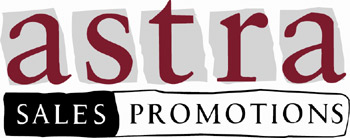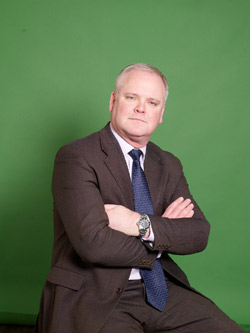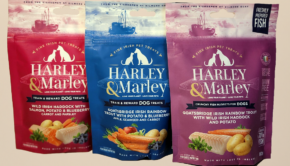First on the field

Conducting good old-fashioned fieldwork, using modern methods, can deliver highly innovative new ways of increasing sales, writes Gillian Hamill
13 August 2010
 A picture of ‘driving forward on to the battlefield’ is no doubt how some operators in the retail sector view business at the current moment in time. While others may be feeling more optimistic; it is nevertheless a crucial time to get out into the field, and assess the strategies that are likely to land a serious punch for your business when it comes to generating sales, and those that are simply going to leave you feeling more exposed than the proverbial ‘sitting duck.’
A picture of ‘driving forward on to the battlefield’ is no doubt how some operators in the retail sector view business at the current moment in time. While others may be feeling more optimistic; it is nevertheless a crucial time to get out into the field, and assess the strategies that are likely to land a serious punch for your business when it comes to generating sales, and those that are simply going to leave you feeling more exposed than the proverbial ‘sitting duck.’
Fieldwork delivers
This is where field marketing can play a key role in improving sales turnover. So what exactly is field marketing and how can it help you perform better? A number of techniques can be used within field marketing to help achieve this goal, including auditing and mystery shopping campaigns that can provide independent reviews of products, staff, merchandising, promotions, prices and many more factors which add up to a successful retailing mix. Providing efficient merchandising services and developing successful sales and promotional programmes are also key services offered within the field marketing mix. Field marketing companies such as Lites Group can also provide daily performance tracking in order to evaluate just how much sales turnover has risen as a result of implementing these strategies.
In fact, Martin Duffy, joint owner and operations director of Lites Group, says that with fully resourced offices in Dublin, Cork, Galway and Belfast, “many clients consider Lites Group a ‘one stop shop’ and look no further for all their field marketing needs. Now in our 21st year, Lites’ main activities include standard and promotional merchandising into retail outlets, sales teams (both B2B and door to door), store audits, mystery shopping, promotions, sampling and demonstration staff.”
Duffy adds that, “particularly in the FMCG and ICT sectors, Lites enjoys an enviable client list of who’s who in the Irish market.” Clients have also benefited from the company’s online reporting tool, LitesLive, which was purpose built in order to give clients detailed feedback supported with photographs and videos from campaigns nationwide via the internet.
The online programme, which allows clients to see feedback in real-time anywhere in the world is “the jewel in the crown” of Lites’ service offering, according to Duffy. “Lites Live allows field staff to input feedback and photographs, and office staff to develop advanced reports at the touch of a button. It also allows us to monitor campaigns, carry out audits, and provide ongoing in-depth feedback to clients via the internet.”
He adds that “there is complete transparency, and the system has secure client access and dedicated password facilities for clients.” The software can be accessed remotely by clients through Lites’ website www.litesgroup.ie. Duffy also believes that because Lites Live “has been purpose built and isn’t an off-the-shelf product that you might normally see in this space; we’ve been able to work with our team to develop it as clients have requested additions. The 2010 version is something we’re proud of and is certainly worth a look for any brand or retail managers.”
Maximising merchandising
Xcelerate founder and CEO, Joe Gavin, who has 30 years experience in sales, marketing, in-field operations and retailer interface, believes that the market has yet to mature in outsourced sales support services. Merchandising, he argues, is “one of the most undervalued and misunderstood disciplines in the marketplace today.” In his view, “regular and consistent merchandising can have a greater impact on your business with increased availability generating brand loyalty, return visits to the store, increases in sales and greater customer satisfaction. Outsourcing your merchandising and in-store execution requirements also allows for greater coverage, improved call pattern and higher in-call time per euro spend.”
Point-of-sale (POS) marketing is particularly important within merchandising services, according to Alan Peyton, customer services director, CPM. “Research shows that over 70% of buying decisions are made at the point of purchase, where competition for the consumer’s attention is at its highest,” says Peyton. “With more products than ever being on promotion and an increasingly promiscuous consumer, it is vital for companies to ensure that field marketing which drives influence at the point of purchase is an integral element of their overall sales and marketing strategy.”
A tailored approach
CPM has therefore developed an outsourcing approach that is based on a partnership model, whereby tailored services are developed in consultation with the client. “These can be long-term strategic solutions or short term temporary tactical solutions. CPM operates a full service managed model whereby it recruits, trains and manages field teams on behalf of their clients. The approach is developed to ensure maximum payback on activity for clients.”
When it comes to maximising the efficiency of a store’s merchandising, Fergal O’Sullivan, general manager, Astra Sales Promotions, makes another important point. “You need to be aware that all your marketing budget will be wasted if your products fail to make it the final 50 metres from the back store to the shelf – if it’s not on sale, nobody can buy it.” Astra therefore offers a range of tailored packages to ensure on-shelf availability, from a simple audit of product facings, through to a detailed merchandising and stock ordering service, with all points in between covered, based on your requirements.
“In the case of in-store demonstrations, getting face to face with customers and providing them with an opportunity to taste, feel, touch, smell and sample your product is an essential part of any marketing campaign, whether for new or existing products,” adds O’Sullivan. “This encouragement to trial or switch can be achieved at a very low cost per customer and can provide invaluable feedback straight from the store and the end buyer.”
Solid results
The results yielded from efficient merchandising can prove impressive. “We have achieved increases in on-shelf availability and pull-through of stock way beyond any targets for companies such as Danone, whilst our in-store sampling has achieved sales uplifts of over 100% for a number of clients, plus provided invaluable customer feedback that has been used to refine their offering,” says O’Sullivan.
With a field workforce of more than 300 people (both demonstrators and merchandisers), Astra Sales Promotions, first established in 1985, “can be sure of hearing about any and every movement in our market as soon as it happens, straight from the shop floor,” adds O’Sullivan. “In addition to this, our field supervisors and office-based account managers can distil this information, separating rumour into fact, and allowing us to act on what we hear and respond to client needs accordingly” – a crucial service within the retailing industry.
FMI is another company that can deliver tangible results. Charles Stoney, managing director, FMI, provides several examples. “Our team of Canon retail sales representatives reached their target of €1 million sales in 2009 – a 25% increase year-on-year. Our UPC residential sales team also reached 10,000 sales to date this year (28 July 2010) which is worth nearly €6 million in terms of sales revenue.” The company also helped Cadbury to reach their half-year targets this year by introducing a fourfold increase in the number of displays in Dunnes during June, compared to the same time last year.
Q&A with…
Martin Duffy, joint owner and operations director, Lites Group
What is the history behind Lites Group?
Lites Group began in 1989 with a single office in Dublin city centre and since then has grown to become one of the leading field marketing companies in Ireland.
Is field marketing more relevant during recessionary times?
Absolutely. Sales suffer across the board during troubled economic times and it’s important to make sure your brand is front of mind to encourage purchasing. Field marketing is a cost effective and quantifiable means of gaining increased exposure with consumers. Well implemented and innovative activity, whilst not very costly (less so particularly when compared to other forms of marketing and media) will make a world of difference to your customers, driving brand loyalty and leading to handsome returns in the future. What’s more, those brands prepared to ensure they have consumer facing touch points will be much better positioned for future growth when the economy does begin to turn.
What are some of the most successful results you have delivered for your clients?
The vast majority of activities, thankfully, tend to yield results that clients are very happy with. The proof is in the pudding, so if it doesn’t work for our clients, why should they stick with us? In terms of merchandising activity, recent stand out campaigns would include the saving of over €1 million for a major global brand in the ICT sector, whilst in terms of recent promotional activity, Diageo’s “Arthur’s Day” campaign, must stand out as one of the most memorable and successful of all larger promotional campaigns on Irish shores in recent years.
Lites Group recognizes strong staff training and retention methods are the key assets in delivering the best results for our clients. Key methods of quality control and standards have been honed and perfected to ensure we always deliver and exceed client requirements.
Do you believe you offer value for money?
Yes, having built up an array of long term clients, who continue year-on-year to work with us, we can say that the service we offer is very much ‘value for money’. Having offices in Dublin, Cork, Galway and Belfast and a large pool of over 1,300 locally based staff nationwide, we can rule out significant staff travel and other logistical costs that some agencies have to look at every time they have activities outside Dublin. We avail of the savings that come with that and pass them onto our client. We’re very competitive in our market and our clients recognise that. But the only way we can really gauge – internally – is by looking at our client list over time.
Do you have any limitations on the size of project you will take on – either too small or too large?
The simple answer is no. Although we are known for undertaking large scale campaigns island-wide within a very short period of time, we carry out just as many smaller activities on a day to day basis. Every client is valuable to us and smaller projects are equally important.

Joe Gavin, Xcelerate

Joe Gavin, Xcelerate
Q&A with…
Joe Gavin, founder and CEO, Xcelerate
When was your company established?
2006
What methods do you use in order to research the market?
Usually by spending time with existing clients and potential clients and a lot of time personally in retail stores around Ireland. Our reputation at Xcelerate is underpinned by the amount of time we spend in the field managing our field-based resources. We have proven that this is the best way to identify and capitalise on opportunities. We get over 50% of our referrals from conversations at store level.
Is field marketing more relevant during recessionary times?
Field marketing is especially relevant where organisations are trying to turn fixed costs into variable costs. Companies are trying to flex and change to adapt to the changing environment i.e. central distribution and EPOS ordering. In addition, field marketing allows increased flexibility to be able to respond to spikes in activity e.g. promotional activity, new listings, new product launches, and sometimes the activity is short-term (tactical) to establish and/or evaluate a particular situation. Therefore spend on field resources can be effectively targeted at revenue generating and cost saving activities.
What are some of the most successful results you have delivered for your clients?
In one particular situation, we have driven sales up by 15% year-on-year and in another case, we have increased on-shelf availability from 68% to 95%. In addition, Xcelerate offers clients the added facility of being able to see the results of the in-field activity online through photographs and commentary from field personnel. This creates the transparency required to ensure that the results delivered are verified. This is seen as quite unique to Xcelerate.
How quickly can you deliver a return on investment for clients?
This often depends on what the client wants us to do but typically, clients should be considering a three to four month pilot project to establish the “return on investment” mechanics. We usually ask clients at the start of a project – “what does success look like for you when Xcelerate has completed the exercise?”
Do you believe you offer value for money?
As we can see, field marketing as an industry is growing year on year, and even more so during recent times. Field marketing delivers on two things really well. It offers (a) flexibility and (b) cost reduction – but this must be done without losing any of the impact or effectiveness for the client.
Do you have any limitations on the size of project you will take on – either too small or too large?
Now that we are nearly five years in existence, plus the experience and knowledge of the industry within the Xcelerate team, there is no project that we would not consider. We are better positioned than other companies in our space because we strive to maintain a low overhead base, combined with efficient processes that allow us to scale up where necessary. We have also partnered with gold standard service providers who continuously add value to our offering to the mutual benefit of clients and field personnel.
Q&A with
Alan Peyton, customer services director, CPM
When was your company established?
CPM was established in Ireland in 1986 and is one of Ireland’s leading field marketing companies.
What methods do you use in order to research the market?
The majority of our clients want market inform-ation that is very specific to the channels that we manage on their behalf and thus they are primarily interested in information that is derived from our experience of working on their behalf. We add further relevant information from our experiences in international markets through our sister companies as well as generally available market information from various publications.
Is field marketing more relevant during recessionary times?
The answer should be yes, but the reality is that many companies are working to tighter budgets and thus they actually have less money to invest in field marketing. However, all of our clients are still investing in making sure that they are influencing the point of purchase, which is the key purpose of field marketing. It’s key to remember that field marketing activities are more measurable and produce a more transparent return on investment than other forms of marketing.
What are some of the most successful results you have delivered for clients?
Very recently we supported Keelings in implementing a book promotion in-store linked to their strawberries. The sales uplift was the biggest I have ever seen for an established product. To be fair, the book was fantastic so we can only take a small bit of the credit.
How quickly can you deliver a return on investment for clients?
It really depends on the starting point. For a company that has limited or no in-store presence, we can make a big and immediate impact to their stock levels, availability, display and promotional presence in retail channels which would deliver an immediate return on the investment. For all of our clients, we deliver a healthy return over the course of the year which is why they keep working with us.
Most importantly we have various methodologies to measure the return; we have found that different companies have different levels of sales data available.
Do you believe you offer value for money?
Only if we are genuinely making an impact at store level for our clients, which is measured by the sales uplift we generate on their behalf. We use open book costing models so our clients can see exactly what they are paying for and this reassures them that they are getting value for money.
Do you have any limitations on the size of project you will take on – either too small or too large?
No. Our biggest clients incorporate up to 200 outsourced staff. Our smallest clients sit in our tactical division and can literally incorporate one part-time person doing some occasional work on behalf of a client.



 Print
Print






Fans 0
Followers